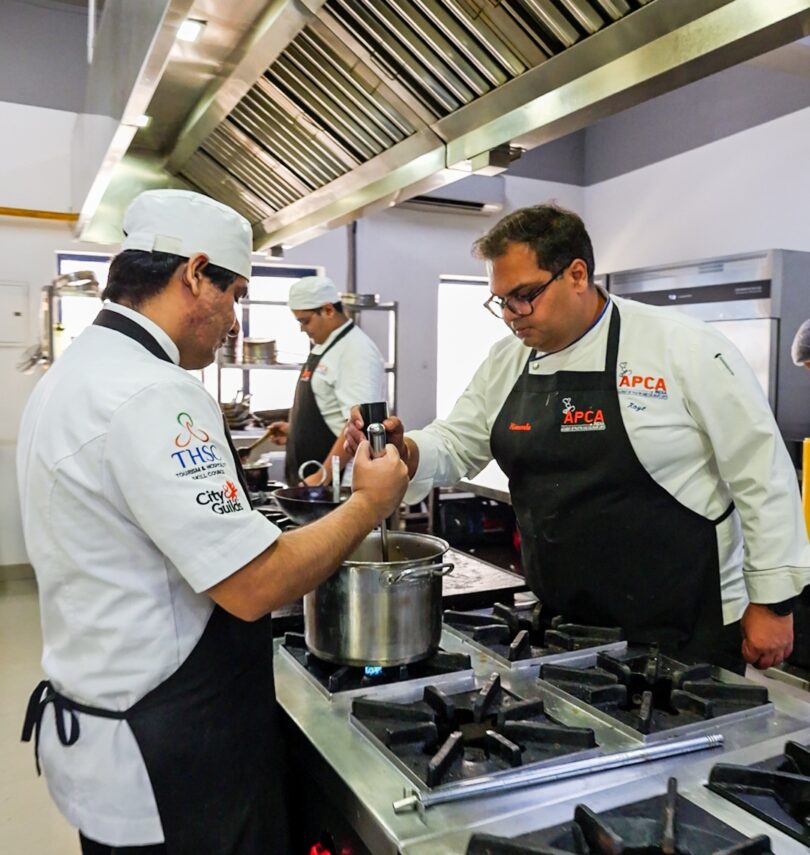From Passion to Profession: Why Culinary Education Counts
The culinary industry is rapidly evolving driven by technology, global food trends, and a growing emphasis on sustainability. For aspiring chefs and food professionals, talent alone is no longer enough. Today, success requires advanced knowledge, business skills, and professional exposure. This is where a Bachelor’s degree in Culinary Arts becomes invaluable, offering students a comprehensive education that prepares them for the demands of the modern food world.
The Shift from Skills to Strategy
In the past, culinary training often focused only on practical skills learned on the job. While these remain essential, today’s industry demands much more. A Culinary Arts degree equips students with expertise in areas such as nutrition, food science, kitchen management, and entrepreneurship. This combination allows chefs not only to cook but also to innovate, manage teams, and build sustainable businesses essential traits for those aiming to thrive as future industry leaders.
Specializations that Set You Apart
A bachelor’s program in culinary arts goes far beyond basic kitchen training. One of its biggest advantages is the opportunity to gain specialized knowledge across both culinary and pastry disciplines.
Students explore advanced cooking methods, global cuisines, and kitchen management, while also developing expertise in pastry arts covering bread science, chocolate and sugar work, and modern dessert design. This balanced approach ensures graduates are versatile professionals, equally confident in savory and sweet kitchens.
By mastering both sides of gastronomy, students stand out in competitive markets whether aiming to work in fine dining, luxury hotels, boutique bakeries, or even launching their own food ventures.
The Role of Culinary Schools
Choosing the right culinary school is critical for maximizing the benefits of a bachelor’s program. High quality institutions offer state of the art facilities, experienced chef instructors, and connections to the global hospitality network. These resources provide students not only with hands on practical experience but also with exposure to international cuisines, modern trends, and industry standards. This combination helps them stay ahead and adapt to a constantly changing food landscape.
Opportunities in India’s Growing Food Scene
India’s culinary landscape is expanding rapidly, with fine dining, boutique bakeries, and global restaurant chains on the rise. This growth offers students a unique advantage: the opportunity to train in a country that is both culturally rich and gastronomically diverse. Here, aspiring chefs can master both traditional Indian cuisine and modern gastronomy. Moreover, many schools in India collaborate with global institutions, offering exchange programs and internationally recognized certifications bridging local roots with global opportunities.
Why a Bachelor’s Degree is the Future
As the food industry becomes increasingly competitive, employers now value candidates who combine technical skills with leadership, business acumen, and creative vision. A Bachelor’s program develops these qualities through real world exposure such as internships, industry projects, and competitions. Graduates are prepared for diverse careers, from chefs to culinary educators and entrepreneurs.
Shaping tomorrow’s Culinary Leaders through Education and Innovation
The Academy of Pastry and Culinary Arts (APCA) is redefining the future of culinary education by blending hands on mastery with academic excellence. Its programs combine advanced technical training, creative innovation, and global industry exposure, ensuring graduates are well-prepared for dynamic careers.
A Bachelor’s degree goes beyond cooking skills, it builds credibility, enhances employability, and opens international doors. Students gain a strong foundation in culinary theory, business management, and food science, preparing them to excel in fine dining, hospitality, entrepreneurship or research. In today’s competitive industry, a degree also signals professionalism and dedication, helping graduates stand out.
With a curriculum rooted in global trends, sustainability, and modern culinary practices, APCA fosters leadership, adaptability, and vision. By the time you graduate, you’re not just a chef you’re a culinary professional ready to shape the future of the industry.


